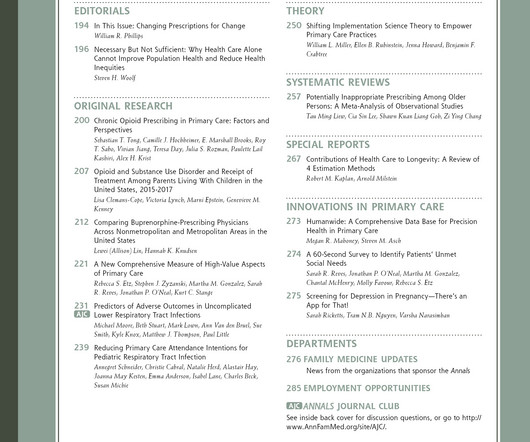Effects of the COVID-19 pandemic on primary care for diabetes in Canada: Results from a mixed-methods study [Health care services, delivery, and financing]
Annals of Family Medicine
NOVEMBER 20, 2024
Context: In Canada, most diabetes care is provided within primary care. Qualitative interviews were conducted with Ontario patients aged > 50 with diagnosis of (or receiving treatment for) type 2 diabetes prior to pandemic onset. Primary care experienced challenges during the COVID-19 pandemic, such as reduced access to care.
















Let's personalize your content